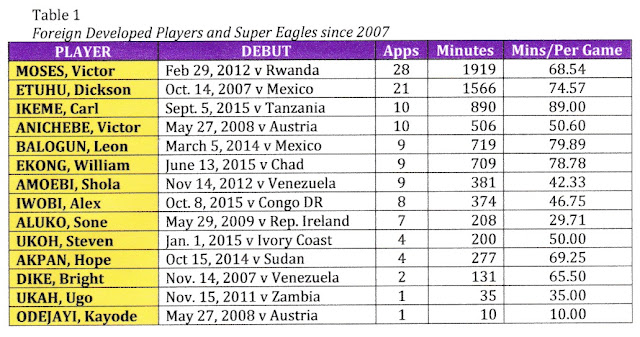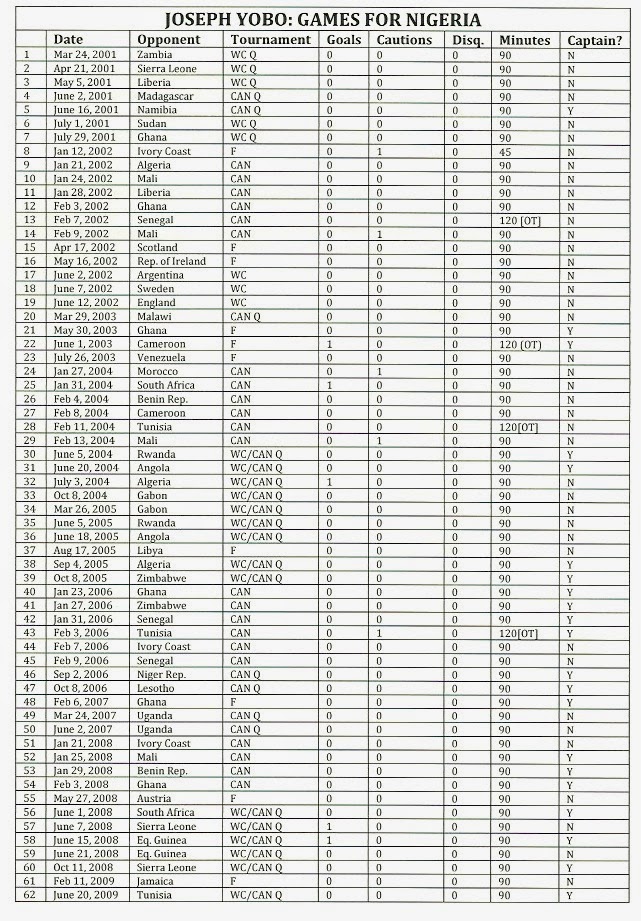The Case of Invitations to Foreign-Developed Players....
When Pinnick Amaju was elected President of the Nigerian Football Federation (NFF) in September 2014, he made it clear that he will not only seek to appointed a foreign coach but encourage Super Eagles' invitations to players developed outside Nigeria. Amaju is a man who appears bent on achieving his goals. He believes in those two for sure and he has worked to achieve them. Already he has a foreign coach and the results, so far, have been successful with maximum points in the ongoing World Cup qualifiers. It is hard to argue against that. If Rohr goes on to take the team to the World Cup and then win the Cup of African Nations, then it has to be acknowledged that Pinnick made a prescient decision.
Invitation Reservation
But how about his other avowed goal? The one about scouring Europe to invite foreign-developed players to form the bulk of the Super Eagles? By foreign-developed, I refer to players born outside the country to Nigerian parents (e.g. Sone Aluko) or players born in Nigeria but who received their early football education outside the country (e.g. Alex Iwobi). This group of players differ from players who currently play outside Nigeria after playing in advanced academy or club football in Nigeria.
Pinnick, like a significant number of other Nigerians, believes that foreign-developed players are better than other Nigerian players because they are tutored in foreign football academies. However, this claim is based on a belief but rarely confirmed through research. It is a matter of belief over evidence. If the foreign-developed player is much better how come foreign youth teams find it difficult to better Nigerian youth teams at international tournaments? Of course, some would claim that Nigerian youth teams are over age but such a claim has dimmed in recent times with new age verification processes in place.
But beyond comparing the foreign-developed player to other Nigerian players, selecting players for Super Eagles from foreign academies is inappropriate when very few players from such academies make it to elite levels in their countries or elsewhere. In essence, it is a process of selecting from a dreg pool. Senior players are better selected from few exceptional players at the academy who have proven their exception by already experiencing quick promotion to the elite level (e.g. Alex Iwobi). Other invited players should deserve a place based on their regular performance at their clubs and not academies.
Nevertheless, it is clear that Pinnick's agenda is being implemented through reserving invitations that go to foreign-developed players for other reasons beyond being good enough to play for the Nigerian national team. The good news, however, is the speculated move to invite players from foreign academies has not yet been explicitly implemented.
This new invitation policy of invitation-reservation leads us to investigate how well foreign-developed players have done playing for Super Eagles. The investigation covers a period of the last ten years and involves number of minutes such players have played for Nigeria and how many games (see Table 1). Of course, Pinnick's tenure has been only from 2014 and covers a period when only five of the listed players debuted (Akpan, Ukoh, Iwobi, Ikeme, and Ekong). However, what is important is not just Pinnick's tenure, but the outcome from use of foreign-developed players.
Conclusion
It is not a sure thing that a foreign-developed player will perform better than other Nigerian players. From the table, just about half of the foreign-developed players, debuted in the last 10 years, went on to play close to 10 games for Nigeria. In fact, two of them played just a game and were discarded for not being good enough. It clearly shows that there is no better reason to invite a player than focusing on a player who has a good potential of making the national team based on how well he is doing for his club. In fact, for foreign-developed players, the clubs that they play for and their career progression are better indicators of how good they may be. This is quite different from using that same measure to evaluate other Nigerian players. Why? The foreign clubs have had ample time to get a very good read on foreign-developed players compared to other Nigerian players.



Comments
Post a Comment